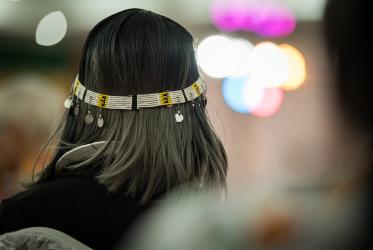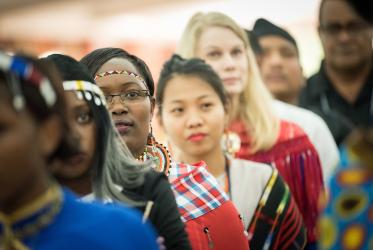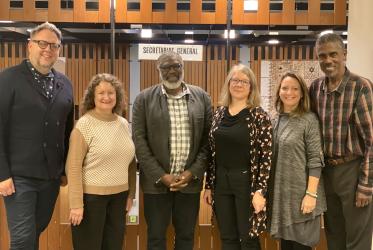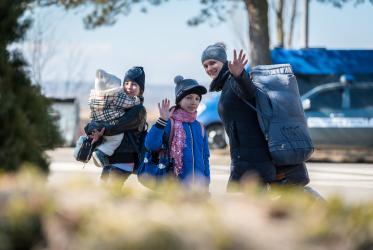At a time when Indigenous communities worldwide struggle for recognition, survival and the right to exist as distinct and self-determined peoples, the World Council of Churches (WCC) convenes a consultation on Indigenous Spirituality and Theology, in Darwin, Australia (NT).
The consultation, which takes place on 27-31 August, is on the theme of “Pilgrimage of Justice and Peace: Shaping Landscapes of Hope Together”. Dr Katalina Tahaafe-Williams, WCC programme executive for Mission and Evangelism, explains, “As the fellowship of churches journeys on a Pilgrimage of Justice and Peace, it is key that we reflect together and articulate Indigenous spiritual and theological understandings of this pilgrimage that can inform, resource, and enrich how churches and faith communities together seek to achieve justice and peace for all peoples.”
”The ongoing realities of injustice against Indigenous peoples worldwide, through political oppression, economic exploitation, and violence, call for renewed political and humanitarian effort and commitment”, Tahaafe-Williams says.
The August consultation in Darwin is hosted by the Nungalinya Ecumenical Theological College, and is the first in a series bringing together Indigenous theologians from around the world to provide space to plan strategically and proactively about how Indigenous spirituality and theology can impact and help shape the ecumenical movement. The series also aims to inspire and strengthen the building of ecumenical networks among Indigenous peoples, regionally as well as globally.
“This consultation could not have come at a better time and place”, Tahaafe-Williams adds. “Injustices against indigenous peoples are unacceptable in all contexts. Yet they surface time and again across the world, not least here in Australia where we have recently seen a very public exposure of violence against young indigenous people in detention.”
“It is our hope that through the work of the WCC and all our partners, we can embark on pilgrimages of justice and peace that transform the landscapes on which we journey and ourselves as pilgrims on the way into peoples and places where God truly reigns,” Tahaafe-Williams concludes.
More information about the WCC Indigenous Spirituality and Theology Consultation, 27-31 August








